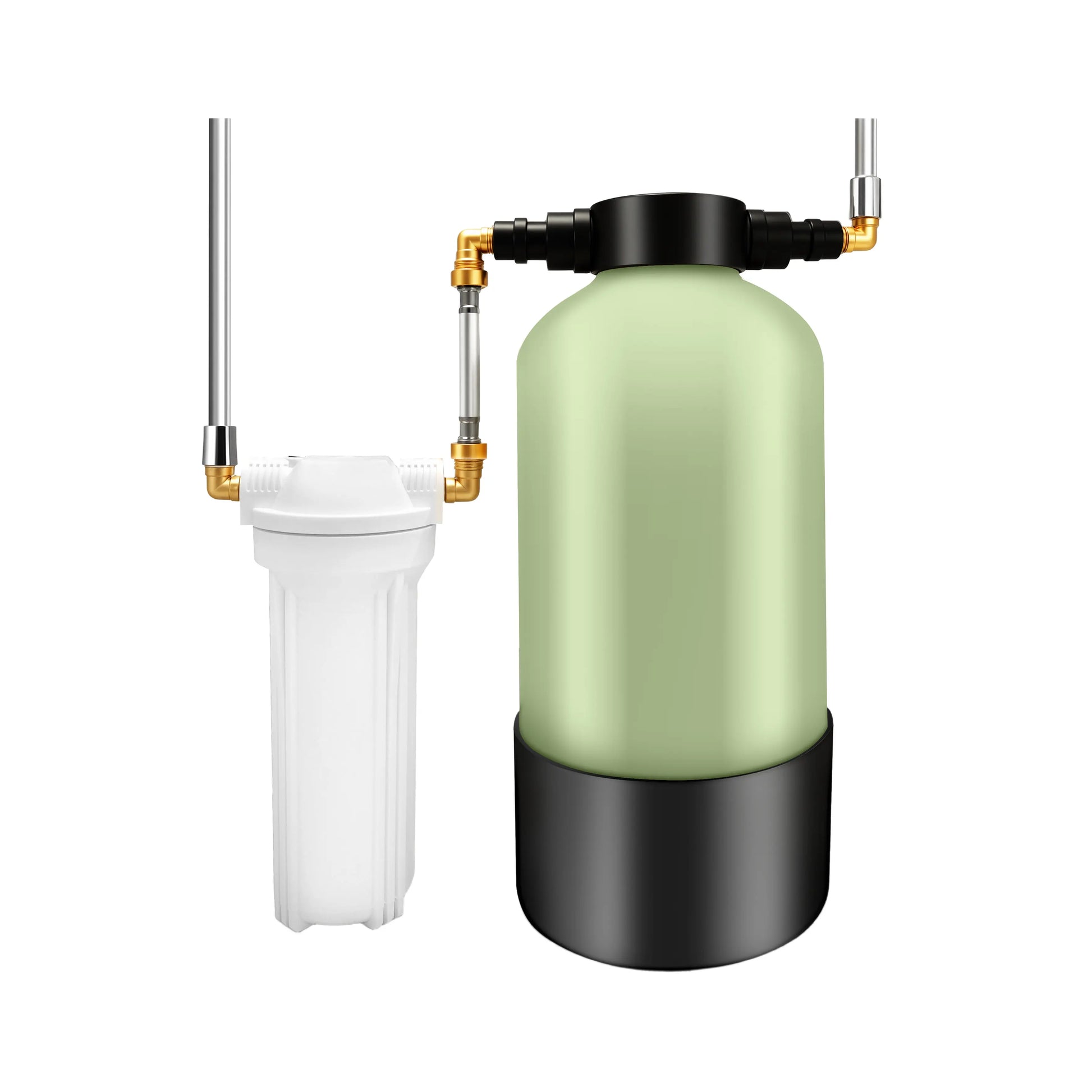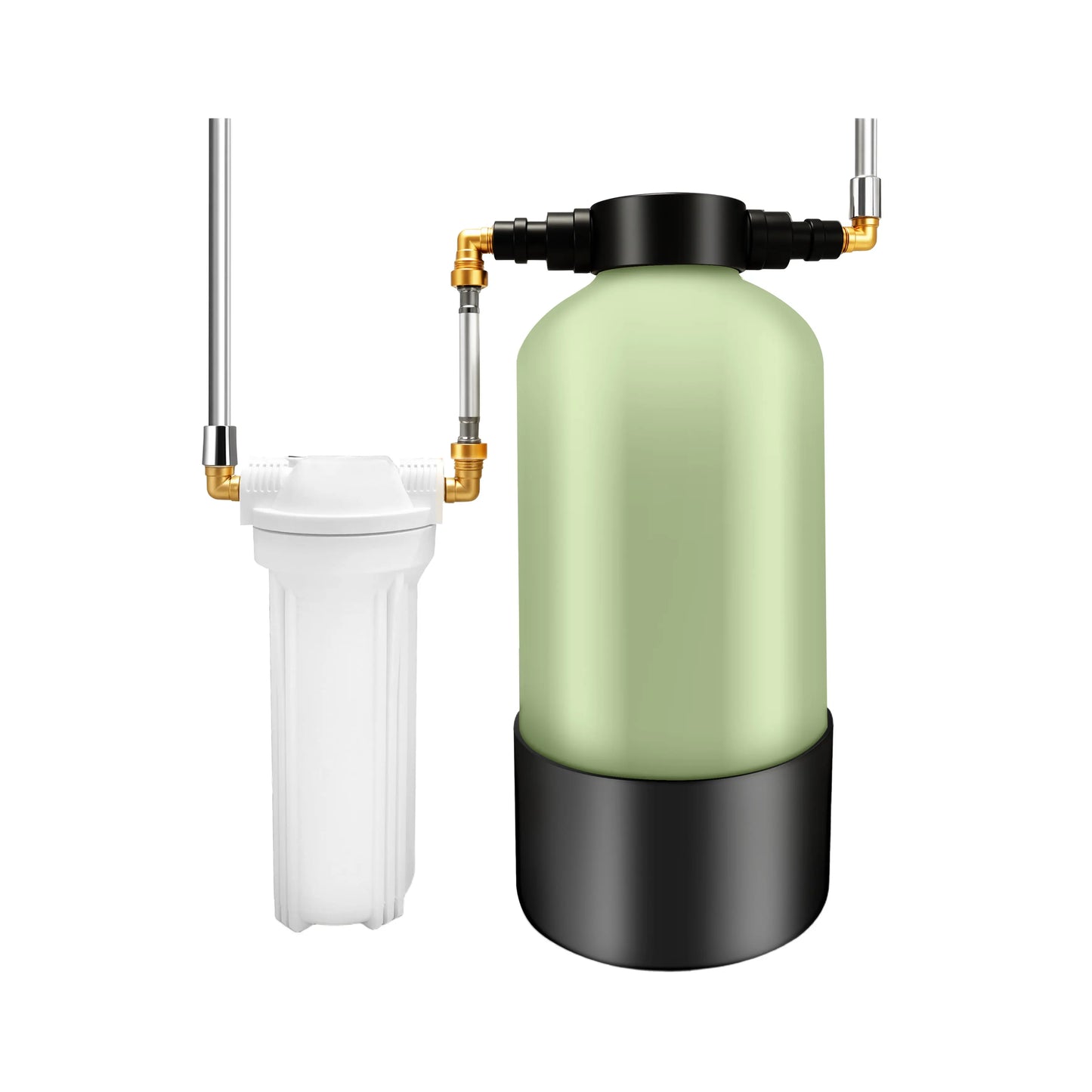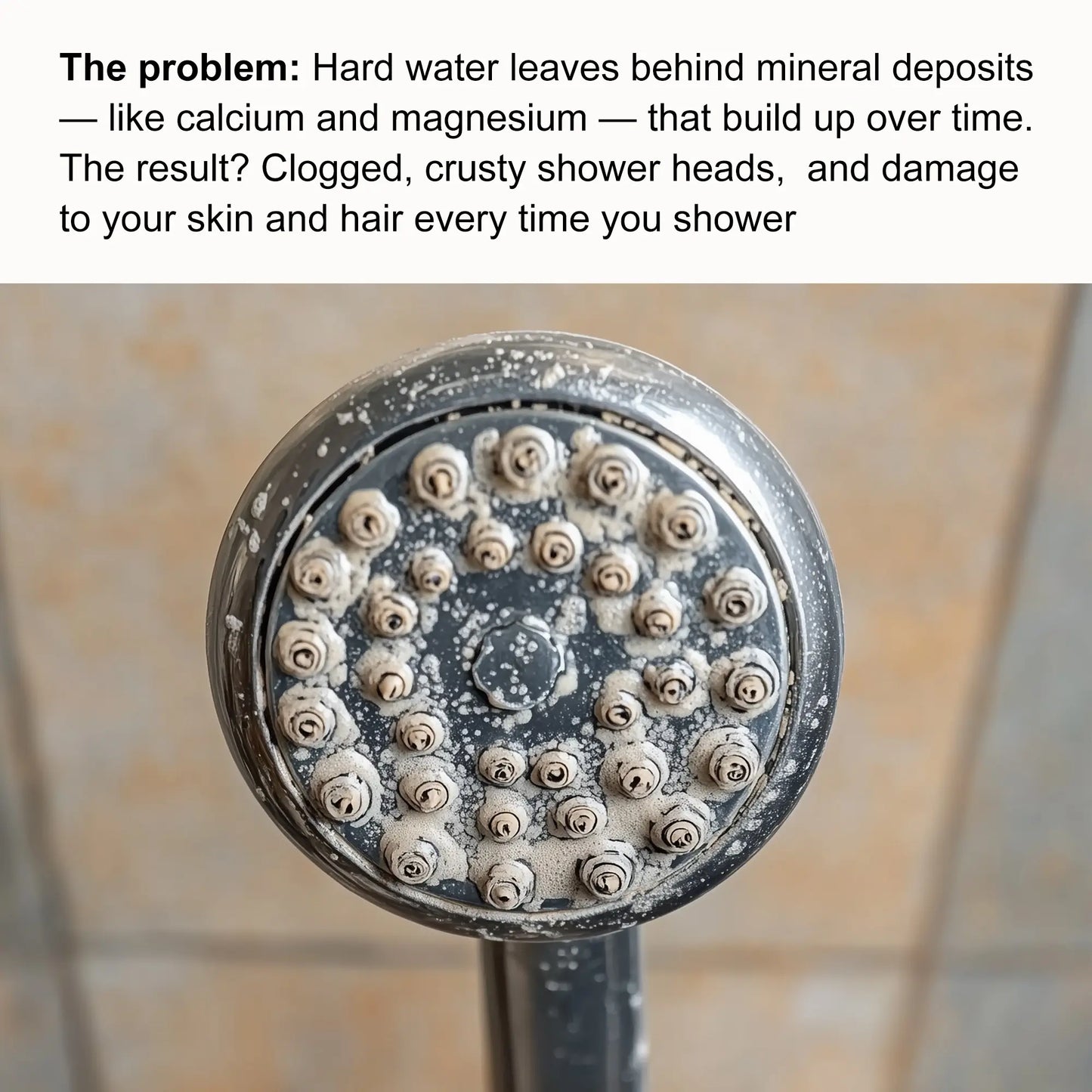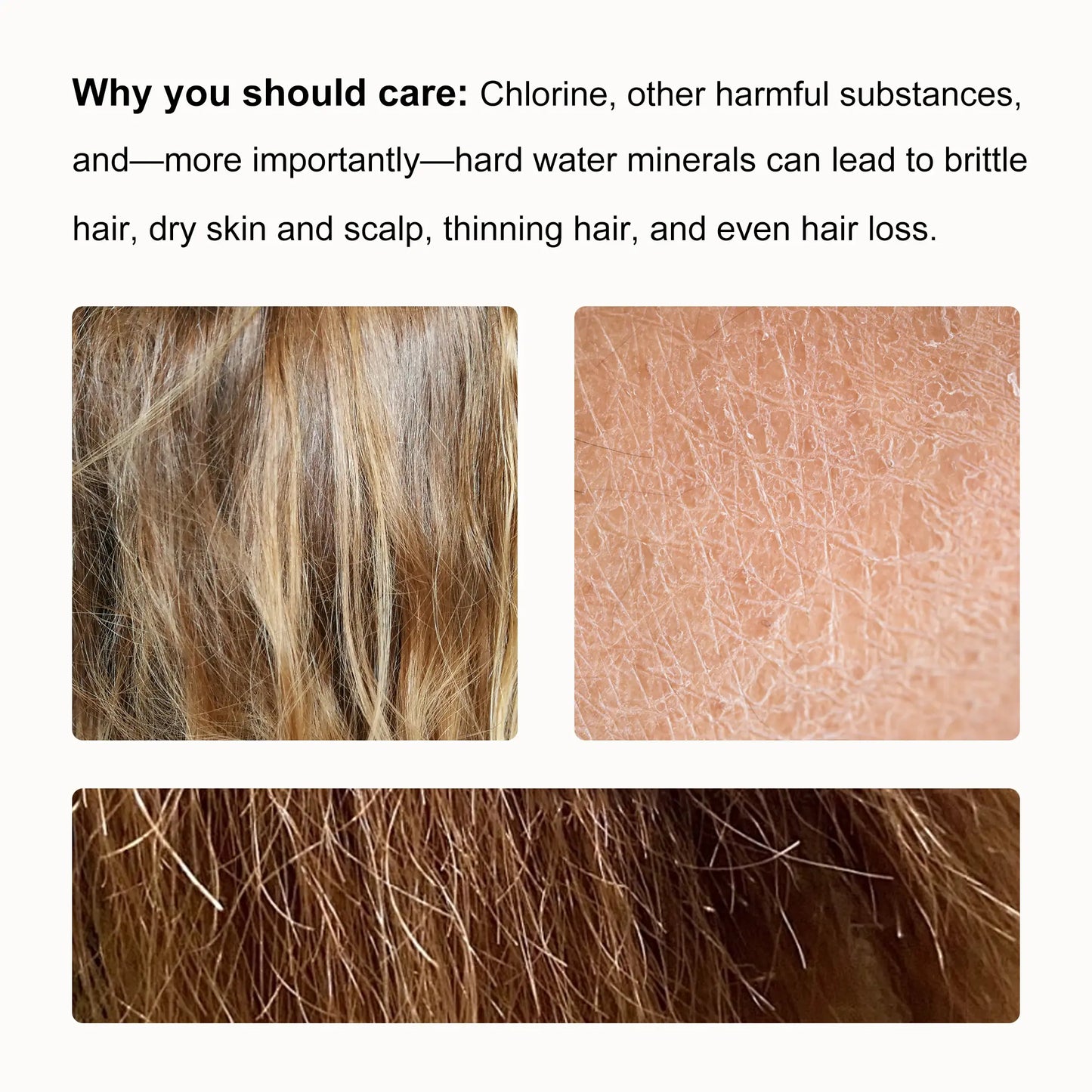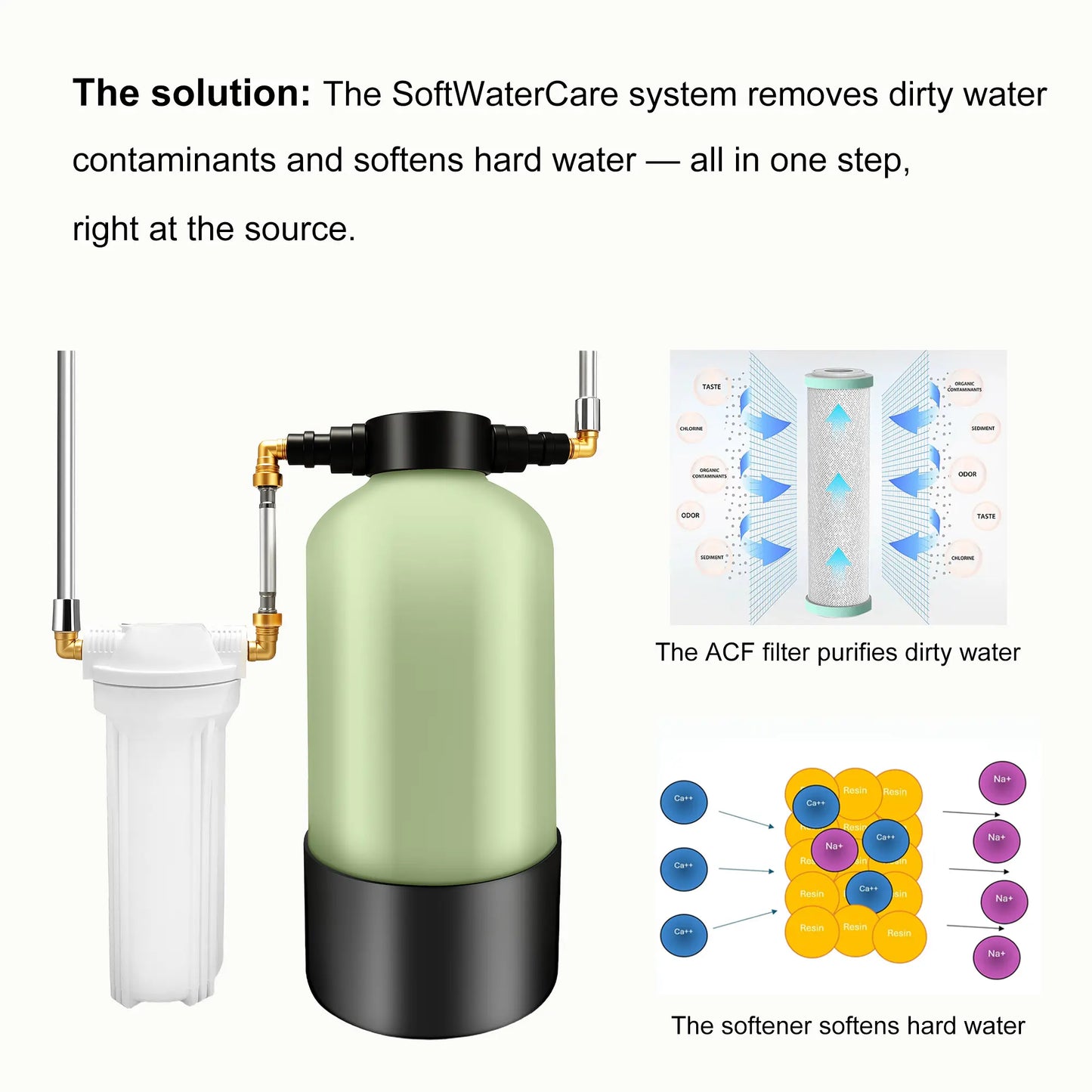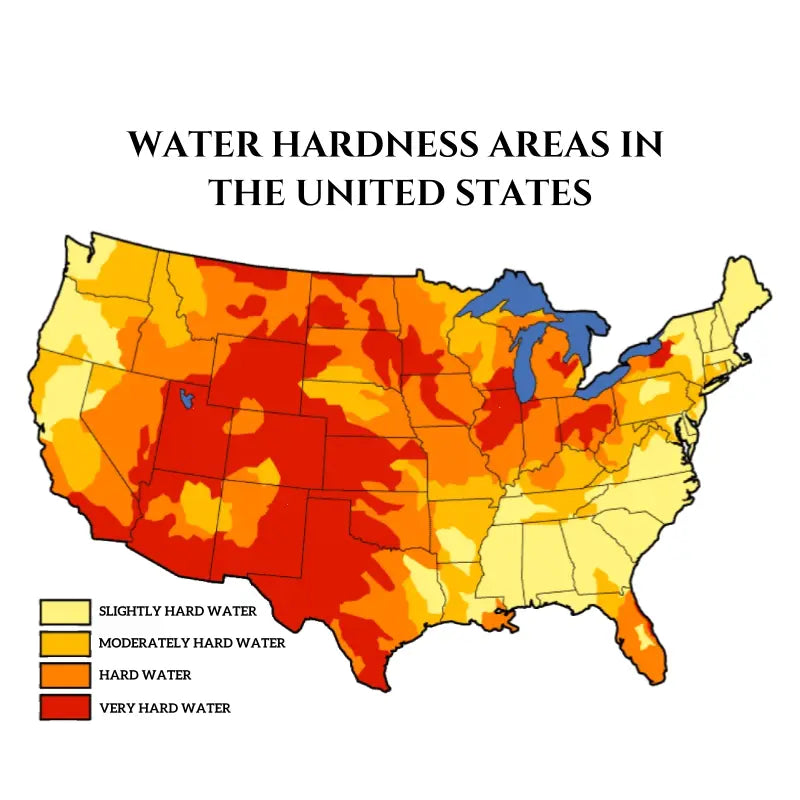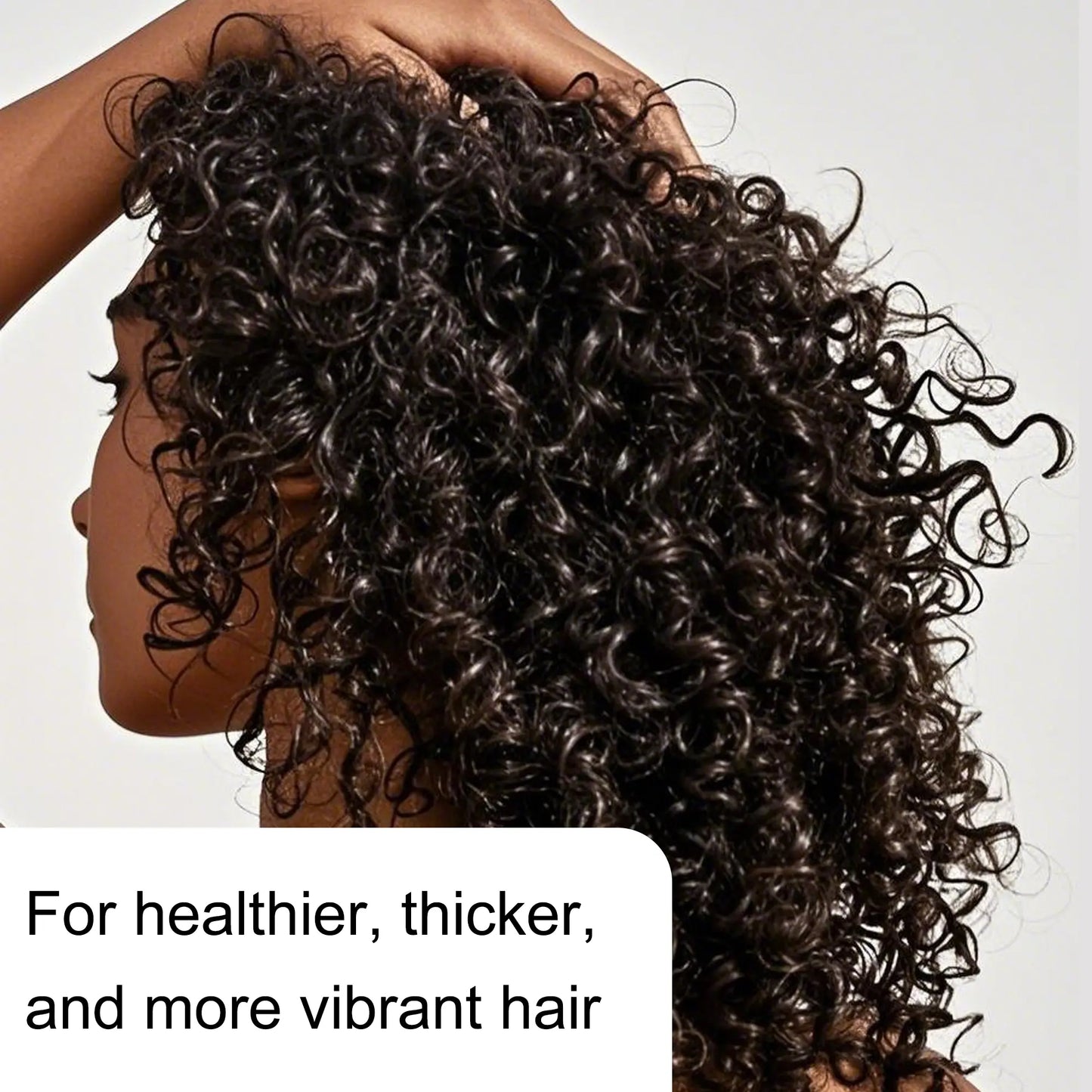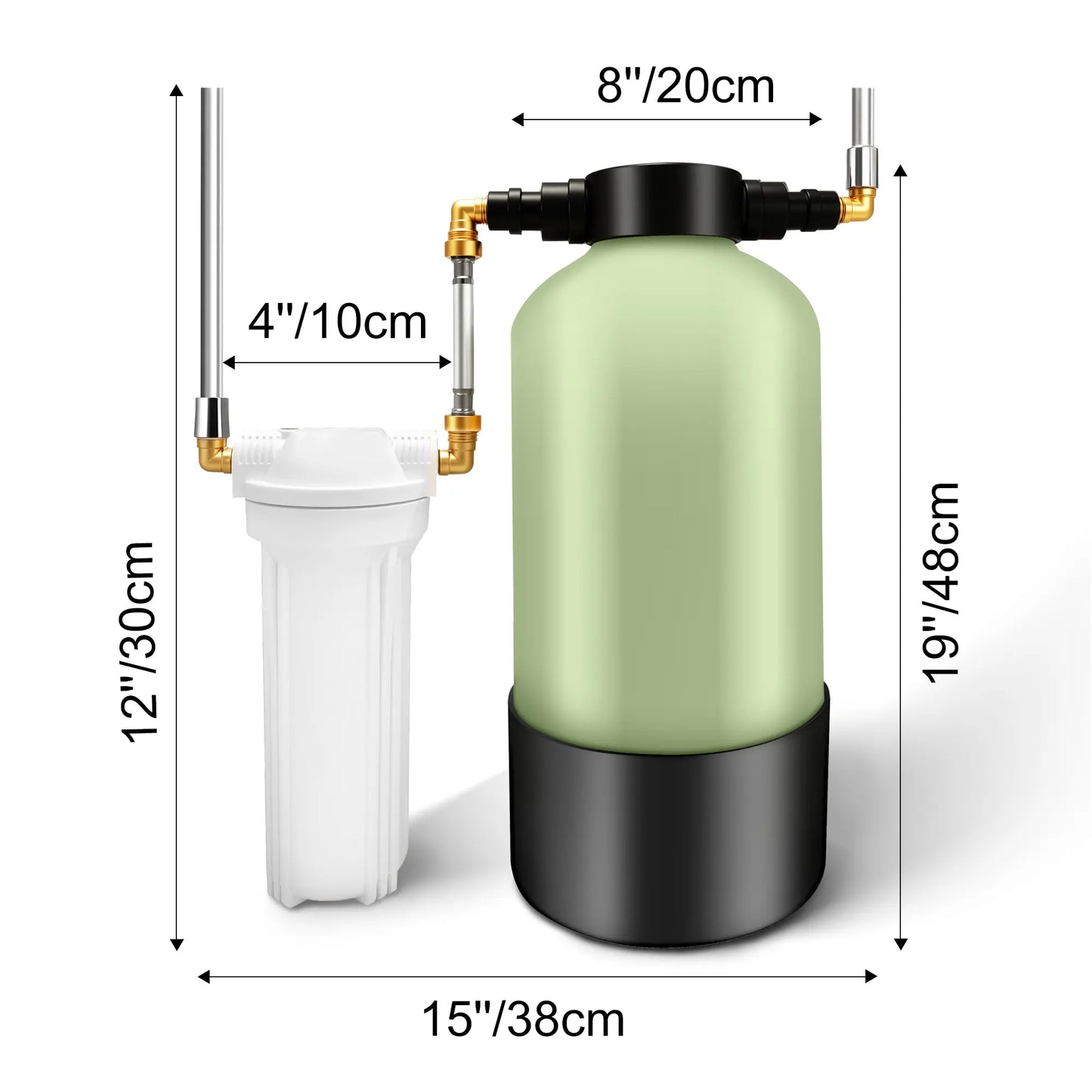When it comes to scalp health, many factors can contribute to conditions like dandruff. One often overlooked factor is hard water. But what exactly is hard water, and can it really lead to dandruff? This article will explore the science behind hard water, how to recognize it, its effects on your hair and scalp, and what you can do to mitigate these effects.

What is Hard Water?
To understand the effects of hard water, we first need to define what it is. Hard water is water that contains high levels of dissolved minerals, particularly calcium and magnesium. These minerals can leave deposits on your hair, skin, and even your appliances. While hard water is safe to drink and use, it can have a detrimental effect on your hair and scalp health.
How to Identify Hard Water in Your Home
You might be wondering, “Do I have hard water in my home?” Fortunately, there are a few simple ways to identify hard water:
- Soap Scum: Hard water often leaves a white or gray residue on sinks, showers, and dishes. This is because the minerals in hard water react with soap, reducing its effectiveness and causing scum.
- Lack of Lather: If your shampoo or soap doesn’t lather well, you might be dealing with hard water.
- Stains on Dishes and Glassware: Hard water can leave behind mineral deposits on your dishes, making them appear cloudy or spotted.
- Dry Skin and Hair: After washing, you might notice your skin feels dry or your hair feels rough and tangled. This could be a result of mineral buildup from hard water.
The Impact of Hard Water on Hair
Hard water can have several adverse effects on your hair, mainly due to the mineral deposits it leaves behind. Understanding how these minerals interact with your scalp and hair can shed light on why hard water might contribute to dandruff.
The minerals in hard water can build up on the scalp and hair shaft, creating a barrier that makes it difficult for moisture to penetrate. This lack of moisture can lead to several problems, including:
- Mineral Buildup: The accumulation of calcium and magnesium on the scalp can cause flakes that resemble dandruff. These flakes are not necessarily a result of skin shedding but rather the residue left behind by hard water.
- Dryness and Frizz: Hard water strips the hair of its natural oils, leading to dryness and frizz. When the scalp becomes too dry, it can start to itch and flake, mimicking the symptoms of dandruff.
- Dullness: Over time, mineral buildup can cause hair to lose its natural shine, making it look dull and lifeless. This can also make the scalp more susceptible to irritation and flaking.
- Weakened Hair: The constant exposure to hard water can weaken the hair shaft, making it more prone to breakage. Weakened hair and a dry scalp can create a perfect storm for dandruff-like symptoms to appear.
Dandruff and Hard Water: Not the Only Culprit
While hard water can certainly contribute to dandruff, it’s important to note that dandruff can be caused by various factors, not just hard water. Other potential causes of dandruff include:
- Seborrheic Dermatitis: A common skin condition that causes flaky, white or yellow scales to form on oily areas such as the scalp.
- Dry Skin: Especially in colder months, dry air can cause your scalp to become dry and flaky.
- Product Buildup: Using too much hair product or not rinsing properly can lead to a buildup that irritates the scalp.
- Fungal Infection: Malassezia, a fungus that naturally lives on the scalp, can grow out of control and cause dandruff.
How to Combat the Effects of Hard Water on Hair
If you suspect that hard water is causing your hair and scalp problems, there are several solutions you can try:
- Vinegar Rinse: One of the simplest and most natural ways to remove mineral buildup from your hair is by using a vinegar rinse. The acidity of vinegar helps dissolve the minerals and restore your hair’s natural pH balance. Mix one part vinegar (apple cider vinegar is a popular choice) with two parts water, and rinse your hair with this solution after shampooing.
- Clarifying Shampoo: Using a clarifying shampoo once a week can help remove the mineral buildup from your hair and scalp. Look for shampoos that are specifically designed to combat hard water effects. These shampoos are formulated to deep-cleanse and remove stubborn deposits, leaving your hair feeling refreshed and revitalized.
- Whole House Water Softener: Installing a whole house water softener is a long-term solution to hard water problems. These systems work by removing the minerals from your water supply before it reaches your shower or faucets. While effective, whole house softeners can be expensive to install and maintain, making them a significant investment.
- Point-of-Use Shower Water Softener: A more affordable and convenient solution is using a point-of-use showerhead softener. This product, such as our Soft Water Care Shower Filter, not only filters out chlorine and heavy metals but also removes calcium and magnesium ions, softening the water right at the source. This results in softer, healthier hair and a flake-free scalp without the need for costly installations.
Conclusion
So, does hard water cause dandruff? It certainly can contribute to the problem by creating conditions that lead to dryness, mineral buildup, and scalp irritation. However, it’s important to consider other potential causes of dandruff as well. By taking steps to soften your water and using targeted hair care products, you can protect your scalp from the harmful effects of hard water and keep your hair looking its best.
If you suspect hard water is causing your scalp issues, consider trying a solution like the Soft Water Care Shower Filter to experience the benefits of soft, clean water on your hair and scalp. Remember, your hair deserves the best care possible!

